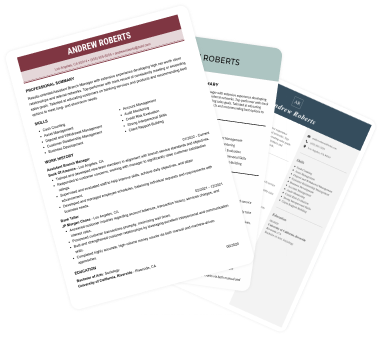
Top 50 Highest Paying Jobs in the UK in 2025
See the top 50 highest-paying jobs in the UK for 2025 across different industries. Explore salary ranges, job descriptions, and expectations.
November 7, 2025
Last updated on 14 January, 2026

AI is reshaping work, but jobs rooted in empathy, creativity, judgment, and hands-on skill remain in demand. The UK faces chronic shortages in caring and practical roles, with the NHS reporting tens of thousands of nursing vacancies and record teacher gaps.
In today’s uncertain labour market, careers built on personal connection or skilled craft can help secure your future. I’ve researched and selected 20+ professions experts say are resilient to automation. Learn what they involve, why AI can’t replace them, what the typical pay is, and how to get started.
Nurses provide frontline care in hospitals, clinics, and community settings, using clinical skills and empathy to treat illness and support patients. Their work – from administering treatments to talking with families – cannot be fully automated. In Britain today, there are over 25,000 nursing vacancies (about 6% of posts). Demand for nursing professionals will grow as the population ages, making it a stable future career.
GPs and hospital doctors diagnose and treat illnesses using advanced medical knowledge and professional judgment. From empathising with patients to making complex decisions, doctors bring a human touch that complements AI tools. The UK continues to face doctor shortages in many areas, keeping demand strong.
Dentists use technical skills and patient care to prevent and treat dental problems. A human practitioner can handle fearful patients and make fine manual adjustments that AI robots cannot yet replicate. Dentist numbers in the UK are stretched, with many patients on waiting lists, so qualified dental professionals remain highly employable.
Pharmacists advise on medicines and ensure safe dispensing. They counsel patients on side effects and drug interactions, and this line of work requires human communication and trust. With an ageing population and expanding healthcare services, pharmacists continue to be in demand as medication experts.
Paramedics respond to emergencies and provide life-saving care on the move. Each callout is unique, requiring quick thinking, teamwork and compassion. AI can’t drive the ambulance or comfort a patient in distress, so demand for paramedics remains high. With ambulance trusts expanding, this dynamic frontline job is expected to grow.
Counsellors and psychotherapists provide emotional support and guidance to people facing personal or mental health challenges. This work relies entirely on human empathy, listening and rapport: areas where AI is no substitute. Mental health support has seen a surge in demand in recent years, making counselling a resilient career path.
Primary teachers foster children’s learning and development, combining subject teaching with pastoral care. They must adapt on-the-fly to classroom dynamics, empathise with young pupils and manage unpredictable behaviour; these are human skills that AI can’t fully replicate. Teacher vacancies in England hit record highs in 2024, indicating strong demand.
Social workers support vulnerable individuals and families, making safeguarding decisions that require nuance and emotional intelligence. They often visit homes, assess situations face-to-face and coordinate with health and legal services – tasks that need human judgment. UK social care is under strain, with recent reports of over 100,000 vacancies in adult social care. As pressures on families grow, trained social workers are invaluable and relatively AI-proof.
Secondary and specialist teachers (e.g. SEN, STEM subjects) also fit the profile of future-proof roles. They design creative lessons and give one-to-one support, handling duties that resist automation. For instance, mathematics or science teachers need to explain concepts in different ways on the fly. Like primary teachers, specialists are facing recruitment campaigns due to shortages, particularly in STEM and special needs.
Electricians install and maintain electrical systems in homes, offices, and factories. The job involves inspecting unpredictable site conditions, performing precise handwork, and ensuring safety – tasks that cannot be automated away. Industry analysis warns the UK needs over 100,000 new electricians by 2032 and faces a massive shortfall of tradespeople.
Plumbers and heating engineers fit a similar pattern. They fix leaks, fit boilers, and solve bespoke plumbing problems on site – all requiring physical handiwork and diagnostics. Automation can’t rewire a quirky old pipe or calm a panicked homeowner. The UK is short of thousands of tradespeople (including plumbers), making this profession stable and well-paid.
Bricklayers build and repair walls and structures, often working on new homes or heritage restoration. The craft relies on hand skill, precision, and adapting to weather and site conditions. A robot bricklayer would still need oversight. With construction booms and housing targets, skilled bricklayers remain in high demand.
Carpenters and joiners craft and install wooden components like frames, flooring, and furniture. This role requires versatility and problem-solving (e.g. custom-fitting a tricky staircase), skills hard for AI/robots to match. As with other trades, the UK’s construction surge means more work for skilled carpenters.
Mechanics diagnose and repair cars and vans. Modern vehicles have complex electronics, but each repair often involves hands-on troubleshooting and adaptation (especially for custom or vintage models). Even with AI diagnostics tools, a technician’s experience is needed. With growing vehicle ownership (especially of EVs requiring specialised care), demand for qualified mechanics is steady.
Graphic designers create visual branding, adverts, websites and more. AI tools can suggest layouts, but a human designer’s creativity, visual flair, and client communication are irreplaceable. Clients still value original ideas and cultural sensitivity, keeping this creative field open to people.
Journalists and content creators report, write, and interpret stories for newspapers, websites, or broadcasters. They gather information via interviews and build narratives – tasks requiring human judgment about newsworthiness and ethics. While AI can generate copy, it can’t replace the investigative instinct or personal trust a reporter builds. Quality editorial skills and local knowledge keep humans in demand in this industry.
Chefs prepare, cook and present food, bringing creativity to menus and adapting to diners’ needs. Cooking robots can automate simple tasks, but recipe development and high-pressure kitchen leadership are human qualities. The restaurant and hospitality sector has rebounded post-pandemic, meaning skilled chefs continue to find opportunities.
Fitness instructors design exercise programmes and motivate clients to improve their health and fitness. This role depends on interpersonal coaching skills and adaptivity to each individual’s needs. AI can’t count reps with someone or cheer them on. With rising awareness of wellness, demand for qualified instructors and trainers is growing.
Cybersecurity professionals protect systems from hacking, fraud, and data breaches. This field requires creative problem-solving and up-to-the-minute judgment on threats that AI alone cannot handle. As the UK government notes, the cybersecurity sector has added thousands of jobs recently: there are now over 67,000 cybersecurity roles in the UK, with 6,600 new positions created in just 2024 alone. With digital threats rising, this fast-growing sector needs human experts in demand analysis and response.
Police constables respond to incidents, investigate crime, and engage with communities. Every situation is different, from comforting victims to making tactical decisions under pressure, requiring empathy, ethics, and judgment. AI can assist (e.g. data analytics), but can’t patrol the streets or interview a teenager in crisis. With concerns over public safety, policing roles remain essential.
Firefighters tackle emergencies ranging from fires to accidents, using practical rescue skills and teamwork. The job demands physical courage and quick adaptation to dangerous, chaotic scenes, which are qualities machines lack. Climate change and urbanisation mean emergency services are busier than ever, keeping firefighter roles in demand.
Across the UK, careers built on human strengths – caring, creativity, adaptability, and manual skill – offer the best defence against automation. Official data and experts repeatedly highlight shortages and growth in these areas. While AI will change work, it amplifies rather than replaces people in fields like nursing, teaching, trades and security. For graduates and professionals alike, investing in empathy-led and hands-on skills today is a way to ensure your next career takes off safely, even in the age of AI.
The list of 20+ “AI-proof” career paths was compiled through a focused review of UK labour market signals, sector analyses, and expert commentary to identify roles most resilient to automation. Our process included:
This methodology is designed to ensure that the careers featured reflect verifiable UK labour market evidence and practical advice for professionals seeking roles that are less likely to be replaced by AI.
LiveCareer UK editorial team has reviewed this article for compliance with LiveCareer’s editorial guidelines. It’s to ensure that our expert advice and recommendations are consistent across all our career guides and align with current CV and cover letter writing standards and trends. LiveCareer UK CV builder is trusted by over 10 million job seekers, supporting them on their way to finding their dream job. Each article is preceded by research and scrutiny to ensure our content responds to current market trends and demand.
Category: Career Advice
Crafting a job-winning CV is all about showcasing your unique skills and experiences. Start with a strong personal statement that highlights your career goals and achievements.
Try Our CV Builder Now